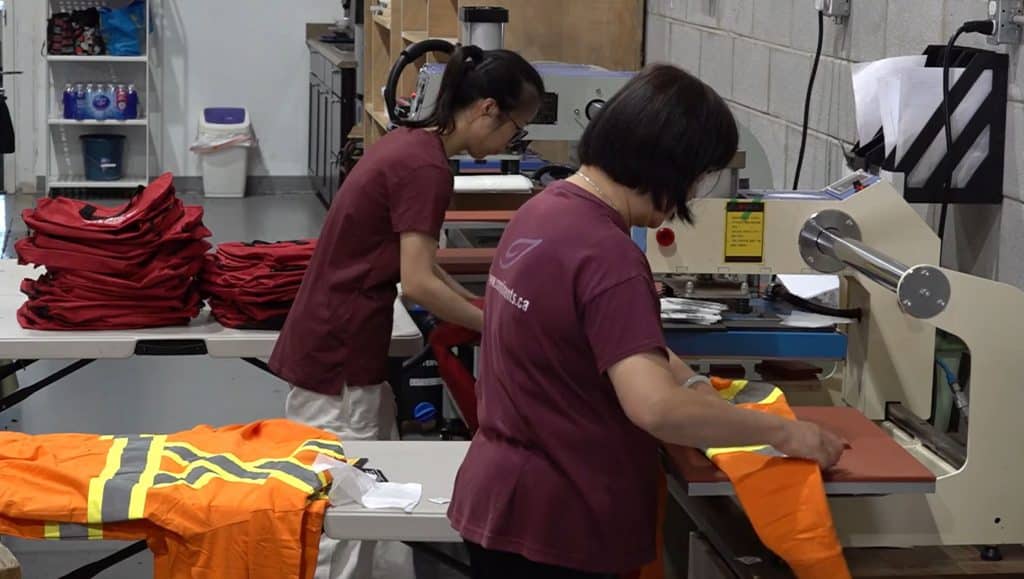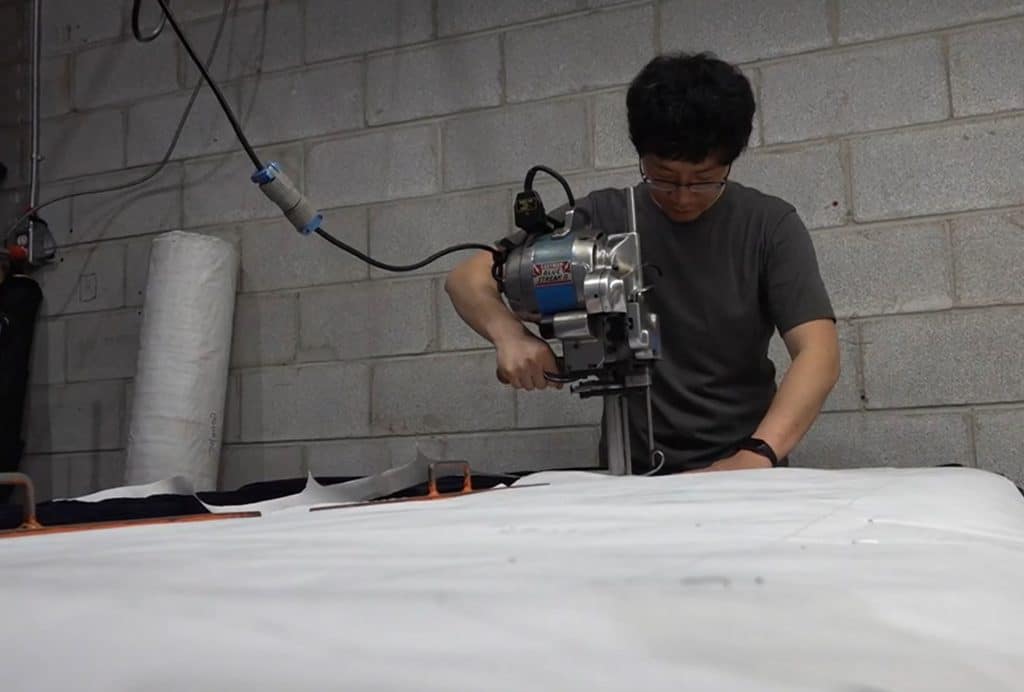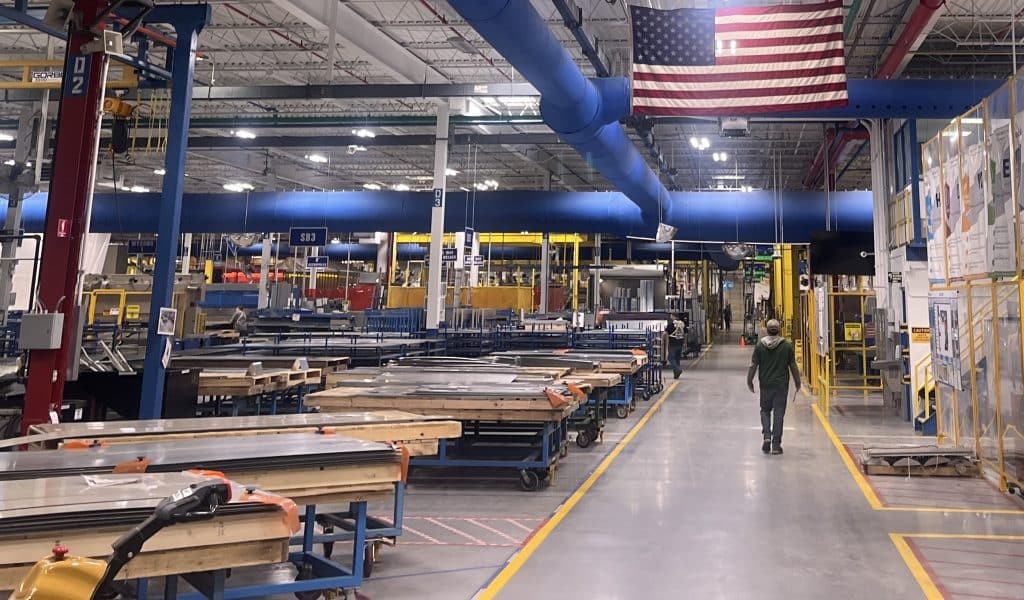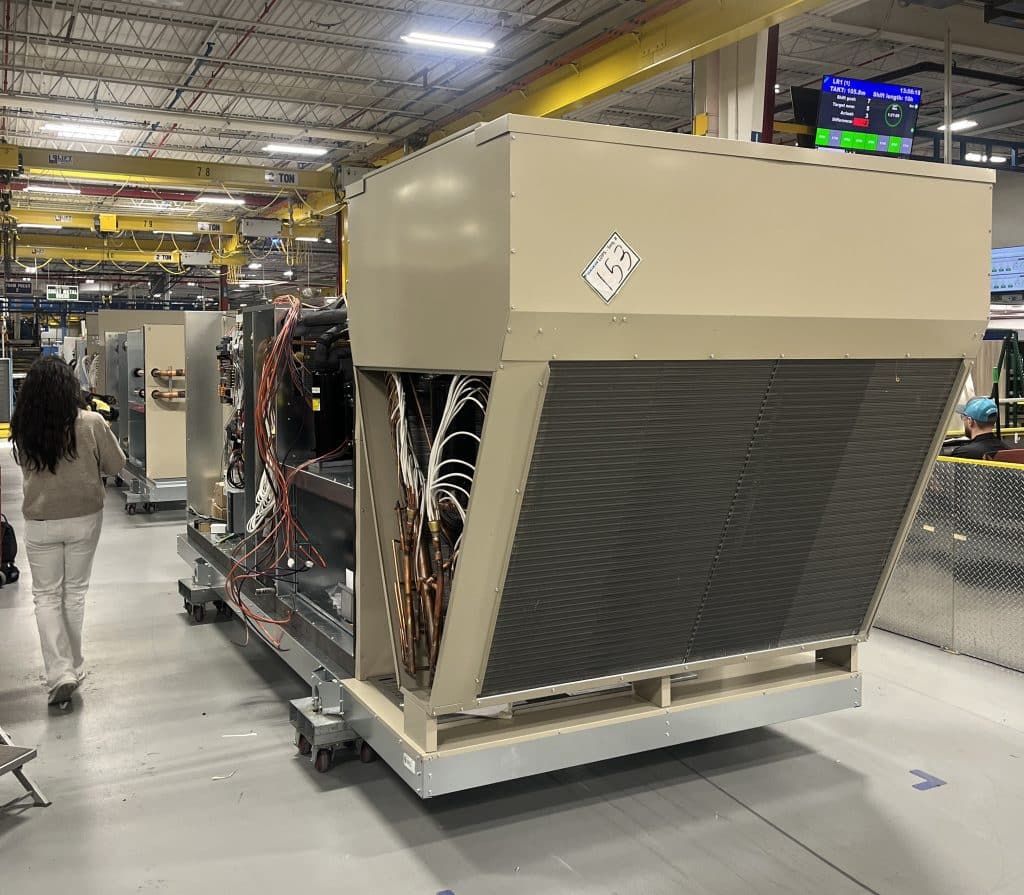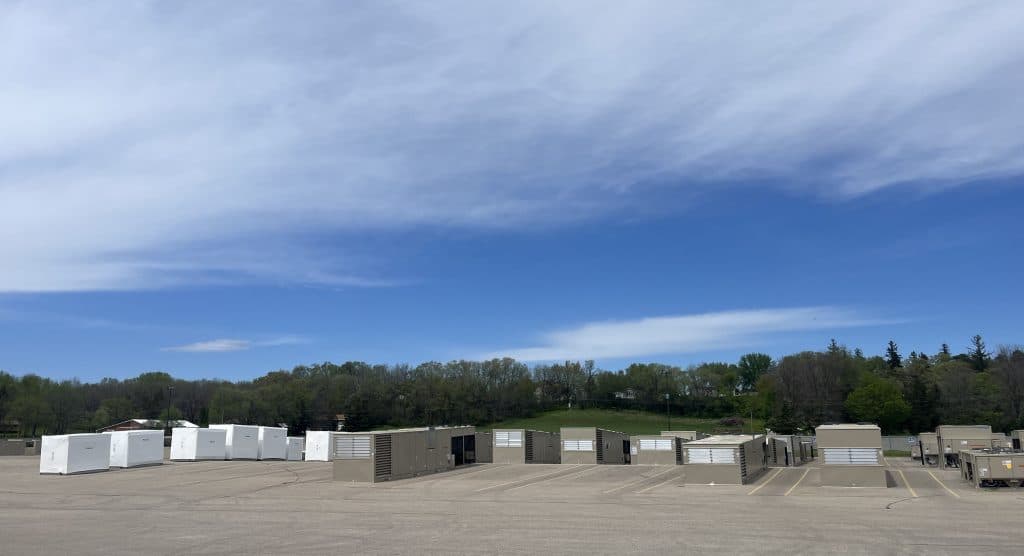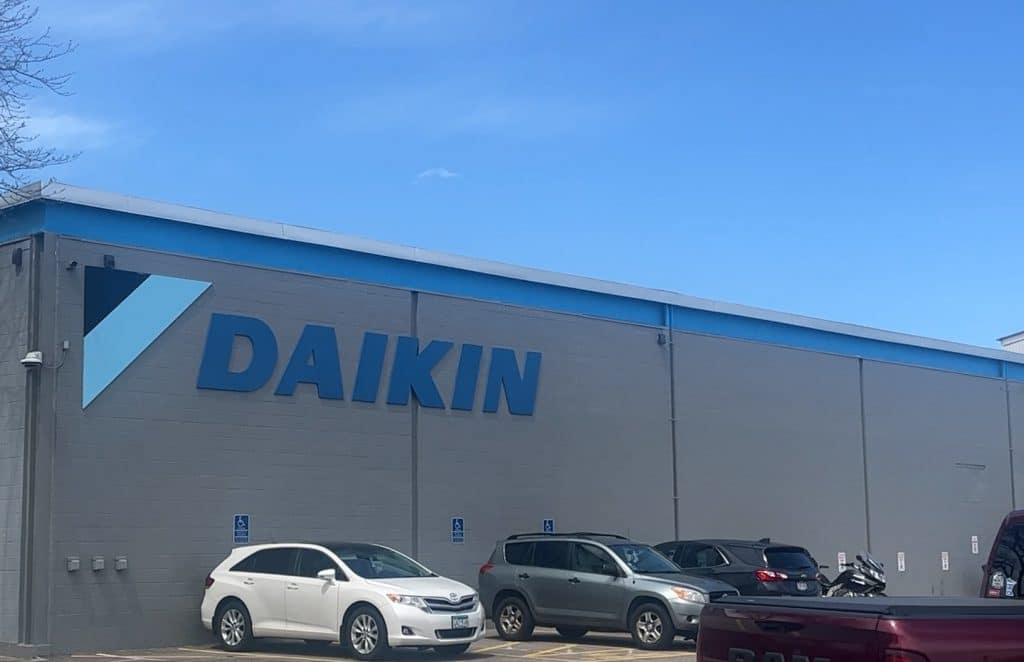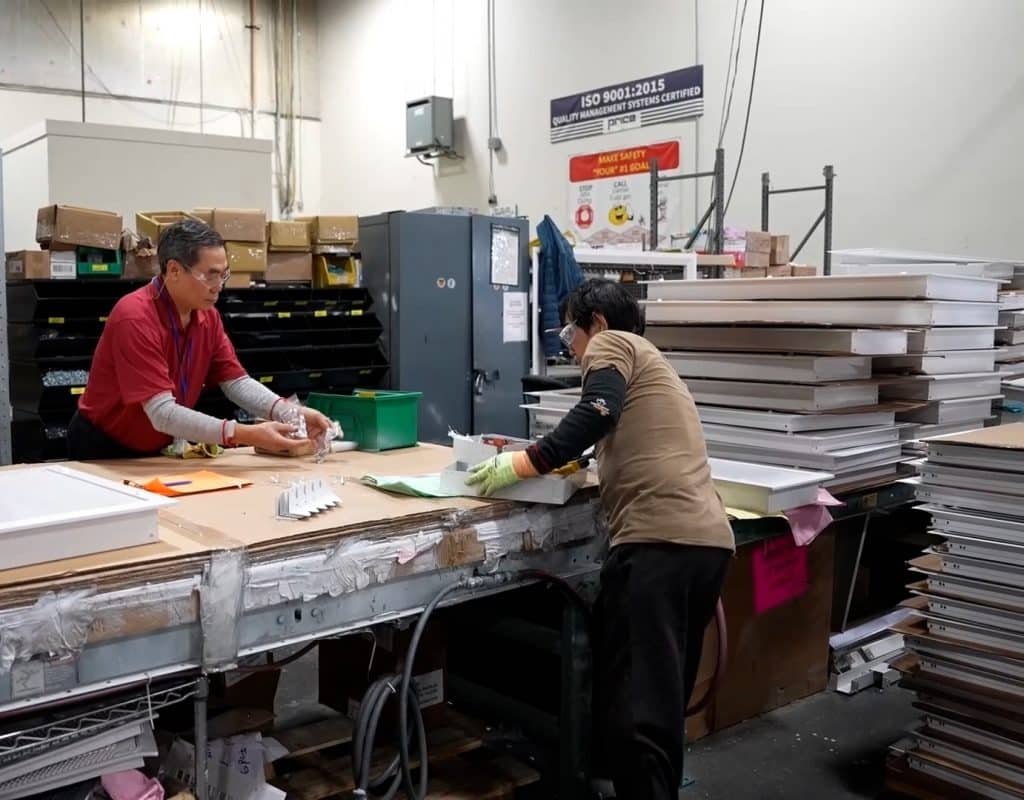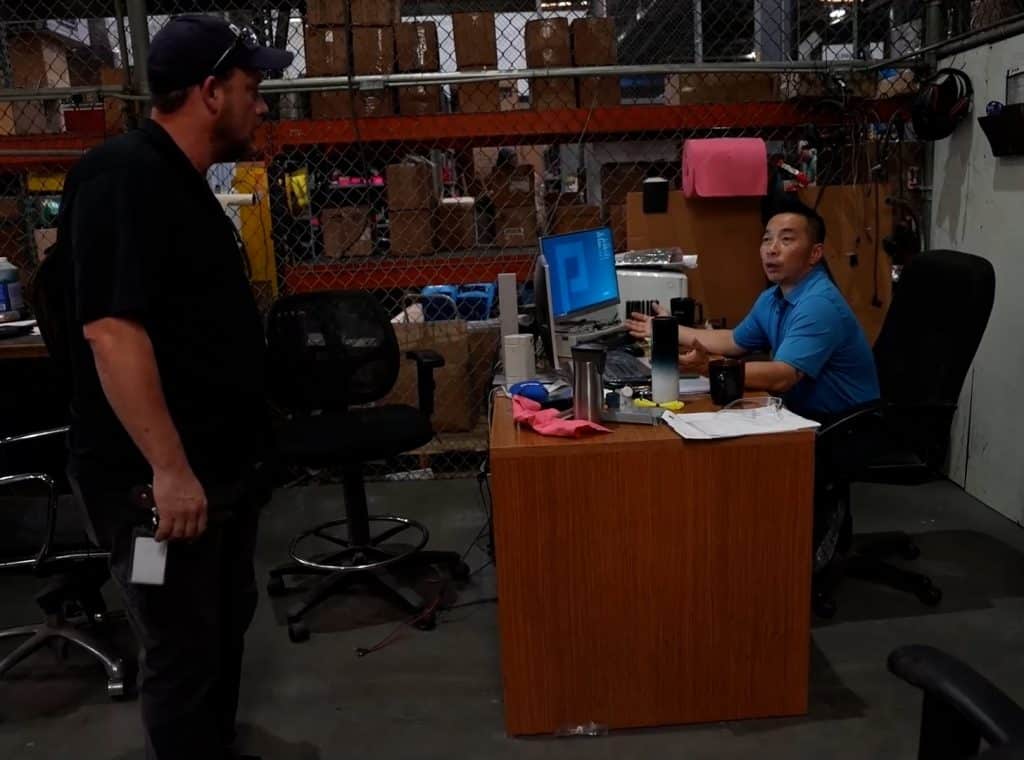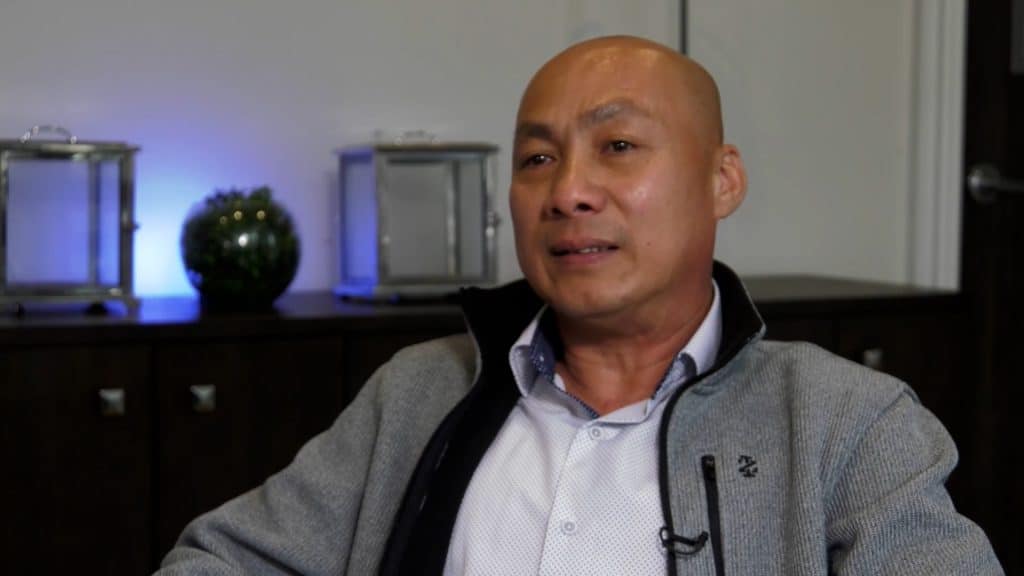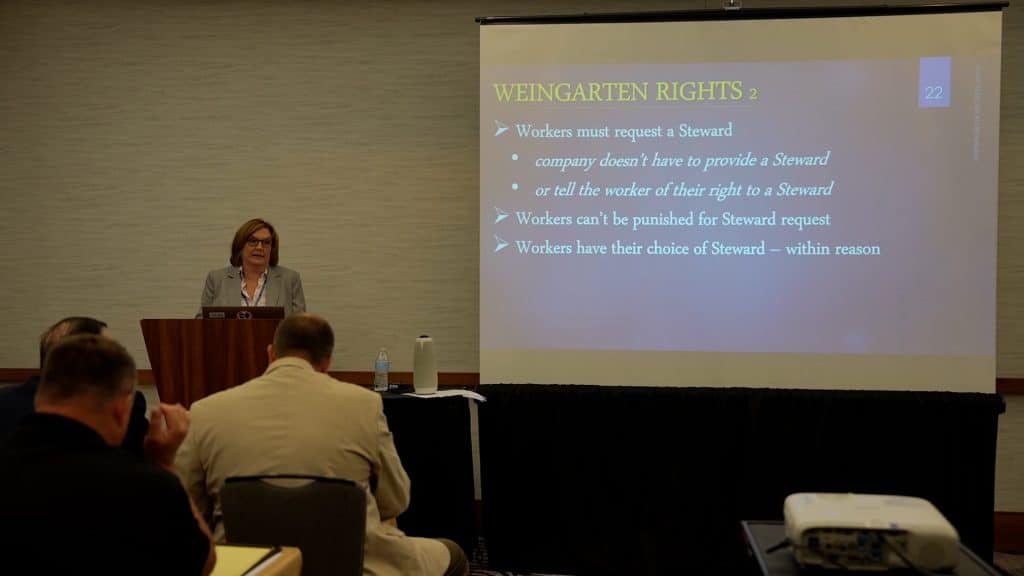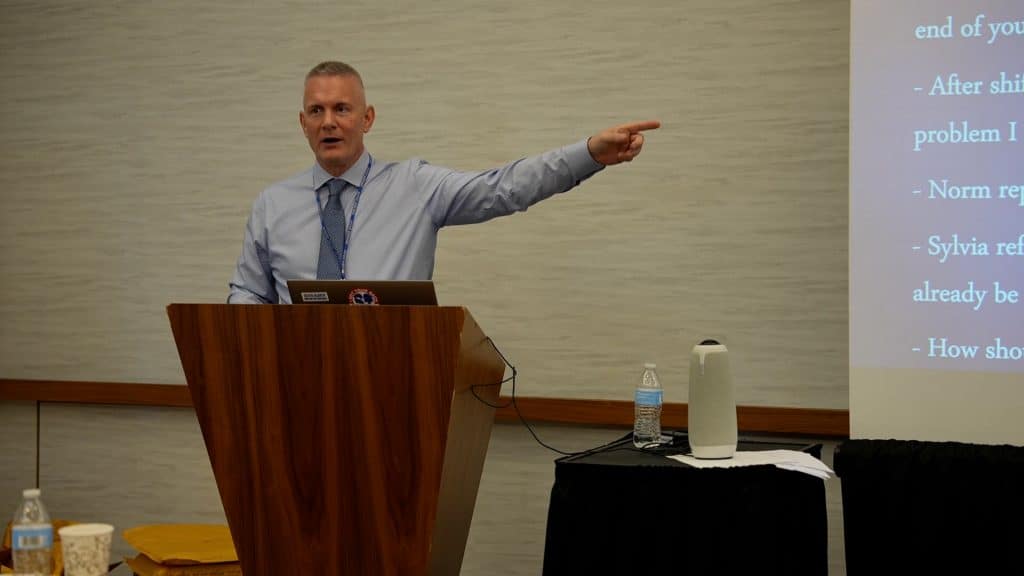Delegates to the Third SMART General Convention in August 2024 left Las Vegas with an array of union apparel, including a SMART laptop bag, SMART-branded hats and SMART polo shirts.
What convention attendees may not have realized is that those items — along with a growing range of SMART merchandise — were designed, assembled, fabricated and embroidered by their union brothers and sisters in Ontario, Canada.
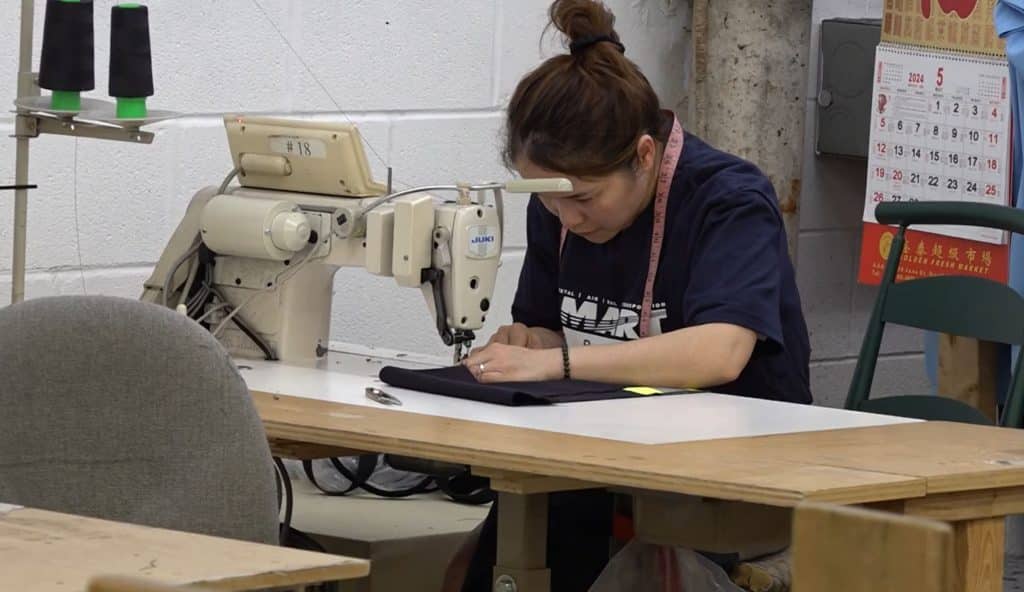
“I’m super proud of that, and we’ve been continuing to have more locals as well as our International purchasing more products,” said Local 540 (Mississauga, Ontario) Business Manager and Financial Secretary-Treasurer Derek Evans. “It makes me feel good to know that our members made these products, and our other locals are proud to know that these products are made by our members instead of another union or nonunion.”
Local 540 is the only SMART local in Canada that strictly represents production workers. Members work in a variety of industries (HVAC, automotive, fire life safety, etc.) and with a broad range of materials — including, as of approximately 10 years ago, two shops in the garment and apparel sector. That was when Sonny Wu, the owner of an apparel company called Season Group, approached the local (as well as other unions) to inquire about transitioning to signatory status.
“He wanted to get into making union-made apparel that he could sell to other unions throughout Canada and the United States,” Evans explained. “Ultimately, he made the decision to select SMART Local 540.”
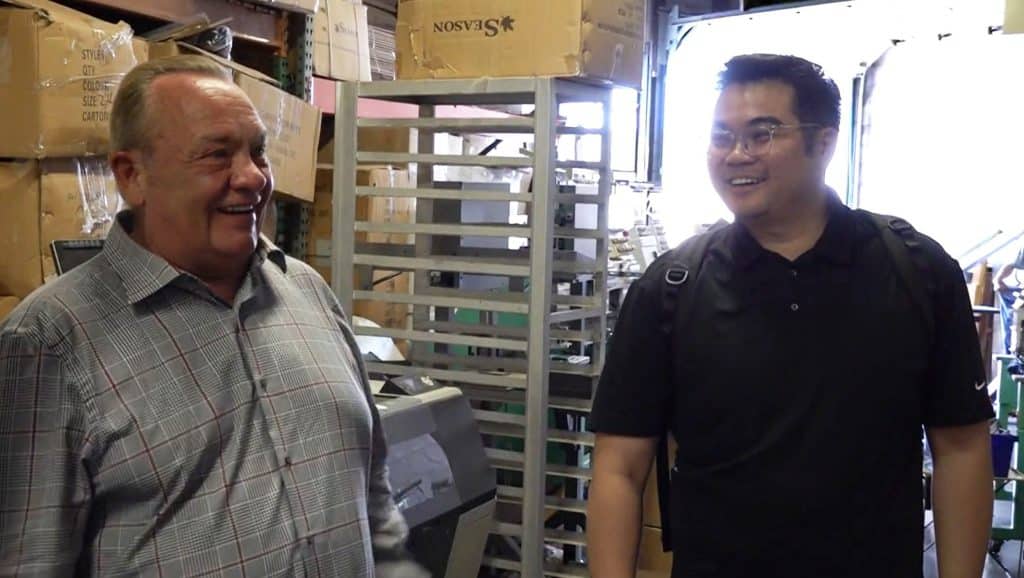
That decision has proven fruitful, even as things have changed in the years since. Sonny Wu retired, splitting his business into two separate shops — Season Group and Union Made Apparel — headed by Vincent Hu and Sonny’s son, Wilson, respectively. (Sonny remains very much involved.) And Local 540 members at both shops are now producing pieces for a huge number of their fellow union workers: SMART Local 30 and Local 285 in Toronto, the SMART Transportation Division, the Amalgamated Transit Union and many others, as well as workplace uniforms and gear.
For Wilson Wu, it’s important that labor movement merchandise is made by union members in North America.
“A lot of goods nowadays, they’re bought from somewhere overseas — but we make everything in-house,” he explained.
“We’re end-to-end manufacturing, from sourcing the raw materials — locally made cotton — to dying the fabric, to cutting and sewing, trimming, design consultations, as well as decorating the garments, whether it’s embroidery or screen printing.”
Plus, Wu said, the union advantage pays off in the shop’s bottom line.
“We’ve gotten a lot more work ever since we’ve unionized; our workers are a lot happier,” he explained. “No regrets. It’s probably the best decision we’ve ever made.”
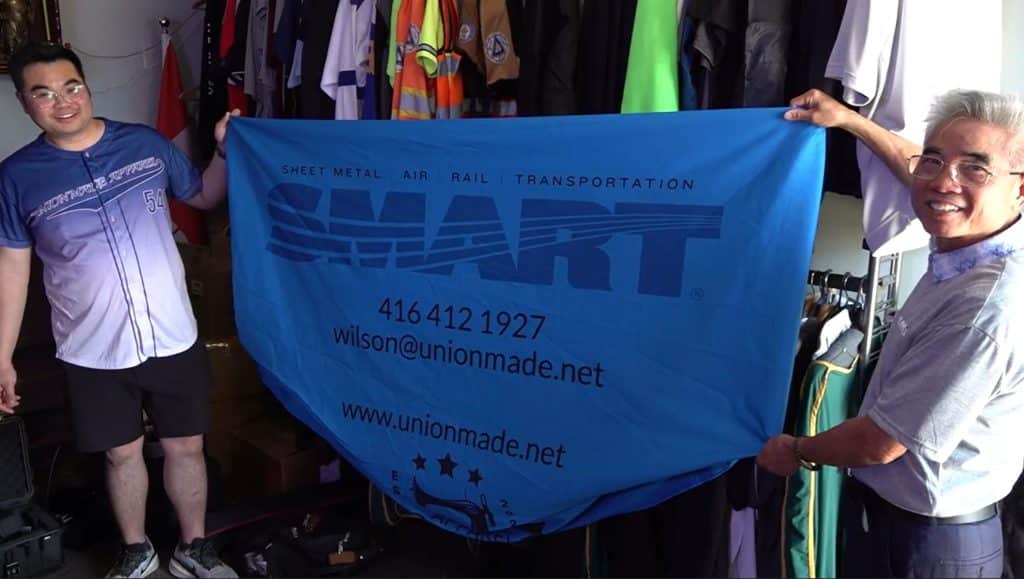
The Ontario garment industry’s workforce is extraordinarily diverse, Evans said: Many employees are of Chinese, Japanese, Vietnamese and Indian descent, along with other countries throughout Asia (and Europe). The same goes for Local 540 sheet metal production shops, particularly in the automotive industry.
As a result, Local 540 has worked to ensure that these members — no matter who they are, where they come from or what language they speak most comfortably — receive the support they deserve. Contracts and workplace communications are translated into a variety of languages, and Local 540 has worked with companies to provide assistance to members navigating the immigration process and applying for Canadian citizenship.
“It has been a learning experience, but the members tend to be welcoming,” Evans said. “The opportunities we have are going to come through diversity and inclusion of different races and cultures. The workforce is changing.”
What’s most important, he added, is that all members — regardless of their ancestry or first language — continue to reap the benefits of union representation. Local 540 member Chris Ferreira, a longtime garment industry worker, indicated that the union difference is certainly being felt.
“It’s been great working at Union Made Apparel,” he said. “There’s been quite a bit more work, it’s a lot more reliable. I’ve been in embroidery for quite a few years, and it’s not too easy to get reliable orders. So yeah, it’s been great, real great being part of Local 540.”
